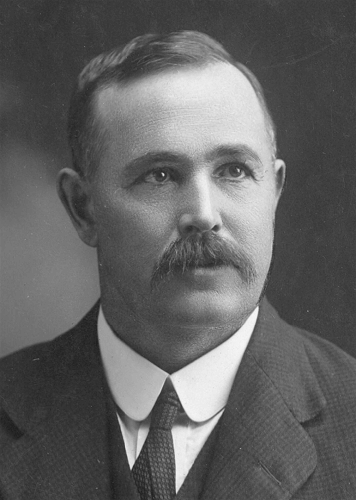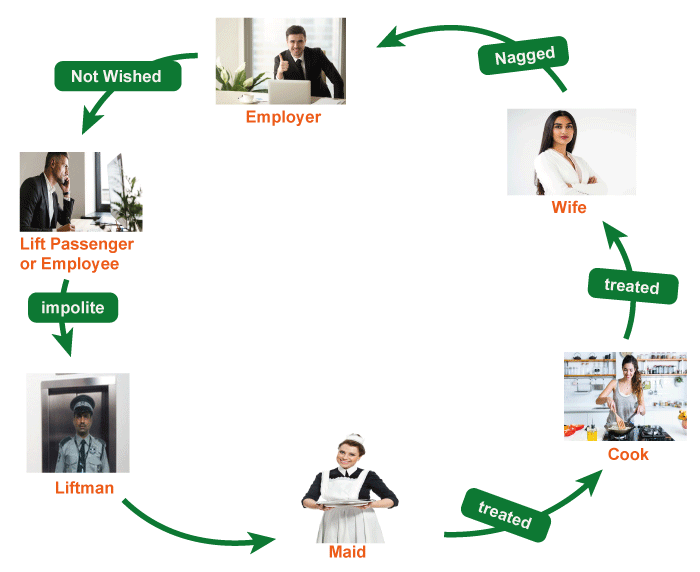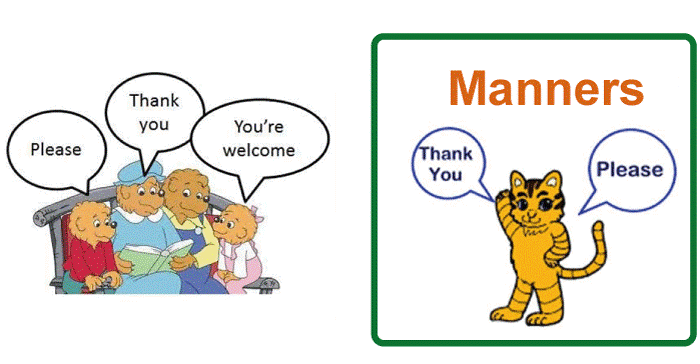On Saying "Please" Summary in English Class 12IntroductionIn his piece titled "On Saying Please," A.G. Gardner discusses the significance of the words "please" and "thank you" in everyday social interactions. It resolves a lot of sour disputes and tempers hot tempers. The author of this article discusses the significance of excellent manners in society. A.G. Gardner uses personal examples from his experiences to support his points. An incident where a passenger was ejected from an elevator because they failed to say "Top please" occurred. Because it is improper to punish rudeness with physical force, the lift man's action was inappropriate. Therefore, the liftman's behavior was not authorized under the law. 
The usefulness of the words "please" and "thank you" in commonplace encounters is covered in A.G. Gardner's essay "On Saying Please." This may prevent or settle many hot arguments, and it can also help control rage. In this article, the author addresses the value of manners in contemporary culture. Using examples from his own life, A.G. Gardner demonstrates his points. The elevator operator sent one passenger out after they failed to request the top floor. The lift guy's conduct was improper because of this. The elevator man's actions were hence both unlawful and immoral. The author asserts that the conflict has caused a worsening of human behavior. Fighting makes people nasty and uncivil because it dehumanizes them. According to him, reviving decent manners is the secret to a happy existence?consistently rude people need to be taught a lesson in etiquette. Introduction To WriterEnglish journalist, editor, and novelist Alfred George Gardiner was born on 2 June 1865 and passed away on 3 March 1946. His essays?which he wrote under the pen name "Alpha of the Plough"?are well-respected. Additionally, he served as the chairman of the National Anti-Sweating League, an organization that advocated for a minimum wage in business. The alcoholic cabinetmaker Henry James Gardiner and his wife Susanna Taylor gave birth to Gardiner in Chelmsford. As a young man, he had summer jobs at the Bournemouth Directory and the Chelmsford Chronicle. In 1887, he began working for the Northern Daily Telegraph, which Thomas Purvis Ritzema had started the year before. He was chosen to be the Blackburn Weekly Telegraph's editor in 1899. 
Under the pen name Alpha of the Plough, he began contributing to The Star in 1915. At the time, The Star featured several anonymous essayists whose pen names were constellations. When given the option to select a star's name as a pseudonym, he chose "the Plough," the name of the brightest (alpha) star in the constellation. His writing is consistently classy, refined, and hilarious. His ability to impart life's fundamental lessons and entertainingly made him stand out from other teachers. One of his most well-known works is the collection Pillars of Society, which also includes the books Pebbles on the Shore, Many Furrows, and Leaves in the Wind. Author Gardiner was praised for writing Pebbles on the Shore with "fluency, deftness, lightness, grace, and often a genuine sparkle," according to a critic. An exemplary tidy conclusion to an essay is at the end of "The Vanity of Old Age": "Nature is a crafty nurse, for sure. She offers us lollipops along the road, and when the lollipops of success and hope are finished, she tenderly places the lollipops of memory in our toothless gums. And thanks to that delightful vanity, we fall asleep. ThemeThe themes of decency, politeness, morality, responsibility, and control are explored in A.G. Gardiner's On Saying Please. After reading the essay, the reader realizes that Gardiner may be examining the topic of civility and the advantages of being kind to others. The article was taken straight from his Many Furrows collection. Two persons suffered due to the liftman's actions, which included forcing the guy out of the elevator. Both the lift operator, who will probably face charges from the police, and the person who was pushed off the elevator. 
Although some detractors would argue that the lift driver's self-defense was justified because of the pushout's lack of consideration for others, the only harm is caused by the lift operator's conduct, as opposed to if he had maintained his pleasant demeanor and spoken up for moral principles. He could have even altered how the man approached him. The narrator makes the case that being kind to others will result in more positive outcomes than acting rudely or hot-tempered. The elevator worker may have even forfeited his independence, as well as his mental tranquility. SummaryAs the author describes in the article, a passenger was thrown out of a lift by a lift employee. The issue was that the person insisted on being brought to the top level reasonably obnoxiously. The liftman preferred a more formal request that began with "please." The liftman expelled the passenger from the elevator because the passenger refused to use the term. Gardiner comments on the situation and emphasizes that justifying the liftman's behavior is unacceptable. He believes this because disrespect is not viewed as a crime subject to legal punishment. The law will support a person who uses force against an intruder who has broken into his home or anybody else who has assaulted him. This is true since the law forbids both robbery and violence. However, laws prohibiting disrespectful behavior are inconceivable. In Gardiner's opinion, the law is correct in prohibiting us from using violence against persons whose manners or speech we do not like, despite the fact that we could feel empathetic toward the liftman. Because if we were allowed this freedom, we would constantly be striking people, and the city's drains would run red. 
According to the author, the only consequence of being rude or arrogant is that others will refer to you as rude. The law, however, will defend him rather than condemn him. Just as there are no constraints on one's looks in the legal system, there are also no restrictions on manners. Hurting someone's "feelings" is not seen as a situation in which the perpetrator must be held liable for damages. There is no legal protection against the harm impolite individuals cause to one's moral character or intellectual capacity. Gardiner claims that despite this, such damages are by no means insignificant. The lift operator must have felt his social standing had been insulted by the unpleasant person's behavior toward him. In any event, the pain of a kick immediately subsides. Therefore, this must be more painful than a kick to the shins. He may also be able to convince the law to take action against the person who kicked him. In contrast, the damage done to one's self-respect is harder to recover from. Gardiner imagines how the liftman probably thought about the insult all day and how, after getting home, he must have taken out his rage on his wife in the evening. People who experience rudeness are quickly infected by it. The author uses an example from Sheridan's play The Rivals to make his argument. Sir Antony Absolute abuses his son in the play, and when the boy becomes irate, he complains to his servant, who then goes and kicks one among the household's lower-ranking slaves. Gardiner speculates that the issue may have started with a housemaid who had been obnoxious to the cook, who, in turn, may have been rude to his mistress, who, in turn, may have passed on her frustration to her husband, who, ultimately, passed upon his annoyance through being rude to the liftman. This is his best guess for the origin of the lift passenger's rude behavior. 
He believed that lousy behavior spreads quickly and is more detrimental to society than the complete list of offenses officially recognized as crimes. Many more people suffer silently from poor temper than just the lady who an otherwise kind spouse cages. However, the law is unable to intervene in this situation. No Decalogue could ever describe all the harm that manners, moods, facial expressions, and other factors cause. Additionally, no legislation may impose restrictions on these. Even though everyone must inevitably respect the law in the liftman's situation, ironically, everyone will feel sorry for him. We cannot abolish traditions that are more revered than the law simply because the law precludes us from using words like "please." A civilized guy would do things like thank people for their service. As civilized humans who live in civil society, Gardiner claims that phrases like "please" and "thank you" are the modest pennies we pay on our trip through life. 
This politeness and courtesies allow us to coexist in a peaceful community. In addition, by maintaining a degree of friendship and goodwill rather than classifying us as superiors who give orders and subordinates who receive them, these phrases contribute to maintaining collaboration amongst people. According to the author, only an obscene person would want a service that he might have by just asking. This is true because, unlike a command, a request will likely result in the service being provided with kindness. Gardiner continues by saying that he wants to set an excellent example for others by citing the actions of a friend he refers to as "the polite conductor." He hastily clarifies that he does not mean to suggest that all conductors are unfriendly by praising one particular conductor for his politeness. In reality, he claims that despite the difficulty of their duties, most conductors approach their profession very kindly. Undoubtedly, there are exceptions. One occasionally encounters disgruntled conductors who view the passengers as adversaries who must be subdued by violence. Such examples are, however, less common than they formerly were. Gardiner believes this is because the men who work for the Underground Railway Company, which oversees the bus service, must adhere to a specific code of courteous behavior. The passengers also gain from this, making it a significant act of social service. Gardiner speaks to us about his first encounter with the kind conductor after making it plain that he had nothing in opposition to conductors in general. One day he gets on the bus without realizing he left home with no money in his pocket. The author believes the reader will be familiar with the emotion that such a circumstance creates because this is a frequent experience for most individuals. Either feeling foolish or corrupt is how one feels. It seems inevitable that the bus driver will order him to get off the bus when the conductor gives him a suspicious look and suggests that this is a frequent heist used by thieves. Even if the conductor is sympathetic and believes him, he will still have to waste time and effort returning home to get his wallet. He will also be unlikely to complete the work he had intended to accomplish. 
Gardiner informs the conductor that he must return home to get some money after discovering that he has no coinage in his pockets. The conductor then informs him that he is not required to disembark. He extends the bundle of tickets to the author and offers him a ticket to any location he desires. When the author informed the conductor of his intended location, the conductor gave him the ticket. However, when the conductor was asked where he ought to put the money, he cheerfully said that he would undoubtedly run into the latter on some bus in the future. He still felt happy due to the conductor's friendly behavior, but it did not lessen. Soon after, the author was severely injured when the same conductor unintentionally walked on his toe. The jovial conductor quickly apologized, adding that he had such hefty boots on since his toes were frequently stepped on, but ironically, he was now treading on people's toes as well. The influence of politeness and how gentlemanly conduct shows good behavior are highlighted here when he enquires Gardiner if he was wounded. The latter comforted him that he was not while, in reality, he was. After that incident, the author then starts to pay attention to the courteous conductor's activities. In his interactions with his passengers, he exhibits an almost endless source of kindness and compassion. He goes above and above to make passengers comfortable, showing the same compassion for older people as he would for his children. The courteous conductor always exuded such good temper and kindness that Gardiner says that a trip with him taught one what natural courtesy and good manners were, whether it was by informing people on the top that there are extra seats lower down when it rains or by cracking jokes with younger passengers to make them laugh, or by setting down a blind person up on the footpath and safely on his way. Gardiner continues by demonstrating the advantages of this behavior. The kind conductor never experienced any difficulties carrying out his duties. In the same way that rudeness breeds more rudeness, positivity breeds positivity in others. According to the poet Keats, he always felt happy when it was sunny, and according to Gardiner, happy people come to us, similar to the gift of fine weather. As a result, it was usually a cheerful mood inside this conductor's bus. His courteousness, willingness to make accommodations, and pleasant demeanor pleased his passengers, making his job more manageable. Because of this, Gardiner emphasizes that his civility was not a wasted effort but a wise investment. The author is sorry to hear that the kind conductor is no longer working on his route, but he hopes it means that he has brought his cheer to another route. He claims that since the world as a whole is pretty uninteresting, this joy must be shared with as many people as possible. Additionally, Gardiner is unrepentant about crafting a work in honor of an unnamed conductor. He believes that as William Wordsworth, an English romantic poet, could draw inspiration from the meek leech gatherer and the lonely moor, so might regular people from a guy who exalted his menial occupation with compassion and good Nature. 
The usage of politeness, which had before made life lovely, is generally believed to have been removed from man's daily existence by the World War. According to Gardiner, such civilities must be established to make a living with one another simpler. This cannot be accomplished with the aid of police or the legal system, which are required for imperfect animals like man. The law can only shield us from bodily harm. Thus, the liftman's response to rudeness with physical force is also ineffective. According to Gardiner, getting sweet retribution while maintaining moral superiority is possible if rudeness is responded to with extreme politeness. For the liftman's benefit, he tells the humorous Lord Chesterfield's story to illustrate that winning over oneself is the only triumph that matters. There was a period when the city's streets were exceedingly muddy, and the only way to keep one's shoes clean was to walk as near as possible to the wall, where a tiny strip of ground was a bit higher than the rest of the route. A crude man who refused to walk into the mud to make room for Chesterfield to pass met Chesterfield in this location. He answered, "I never give in to a scoundrel. Chesterfield immediately went into the muck, bowing and stating, "I always do." Gardiner believes the liftman will see that this kind of retaliation is preferable to tossing the man into the mud. Along with being a prolific writer, Lord Chesterfield was also known for his sharp observations on various topics. ConclusionThe importance of excellent manners in daily life is emphasized in this essay. The narrator describes two occurrences. He demonstrates via them that improper behavior may spread just as quickly as proper behavior. The narrator uses humor in his writing while also subtly and humorously cautioning us against being impolite. Both incidents demonstrate that poor behavior is never acceptable while not being criminally penalized. Similarly, excellent behavior is always appreciated, even when it is not legally enforceable. The assertion made in this essay is that rude behavior should never be met with violence or aggression. Only by being sympathetic to those who behave inanely can we encourage positivism. This means that politeness is a sign of a civic society. |
 For Videos Join Our Youtube Channel: Join Now
For Videos Join Our Youtube Channel: Join Now
Feedback
- Send your Feedback to [email protected]
Help Others, Please Share









